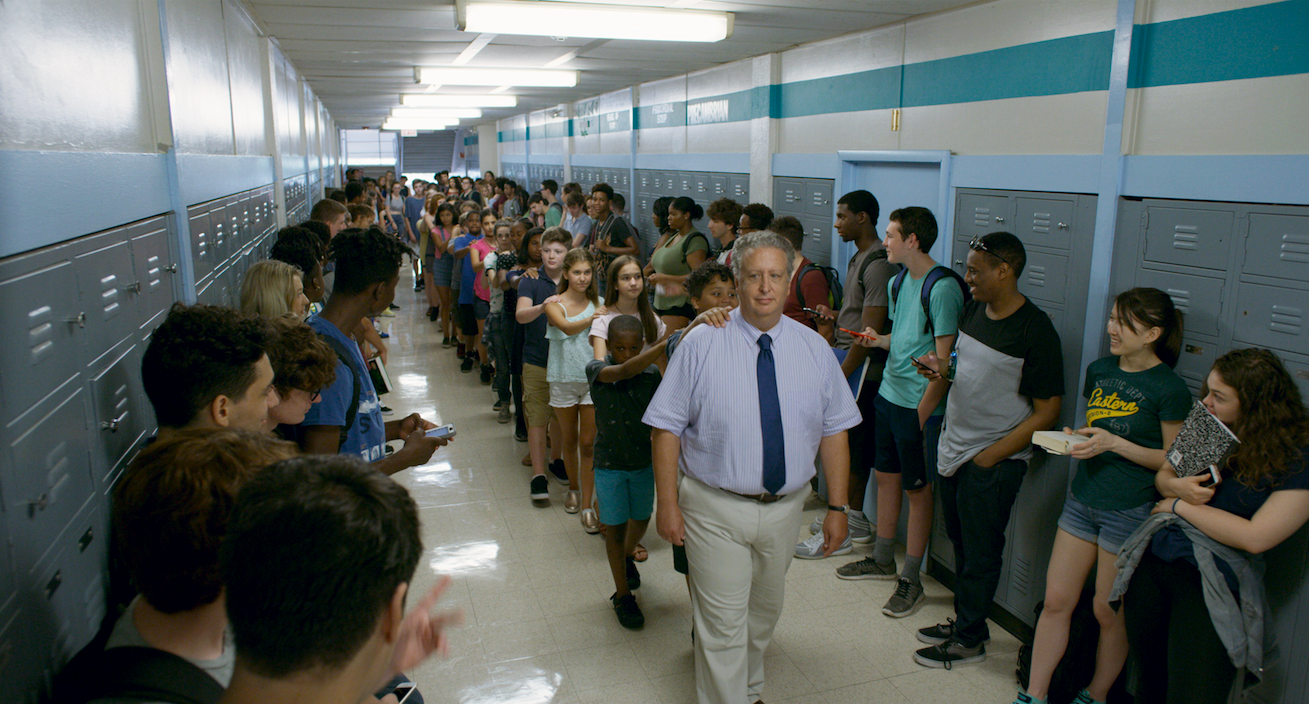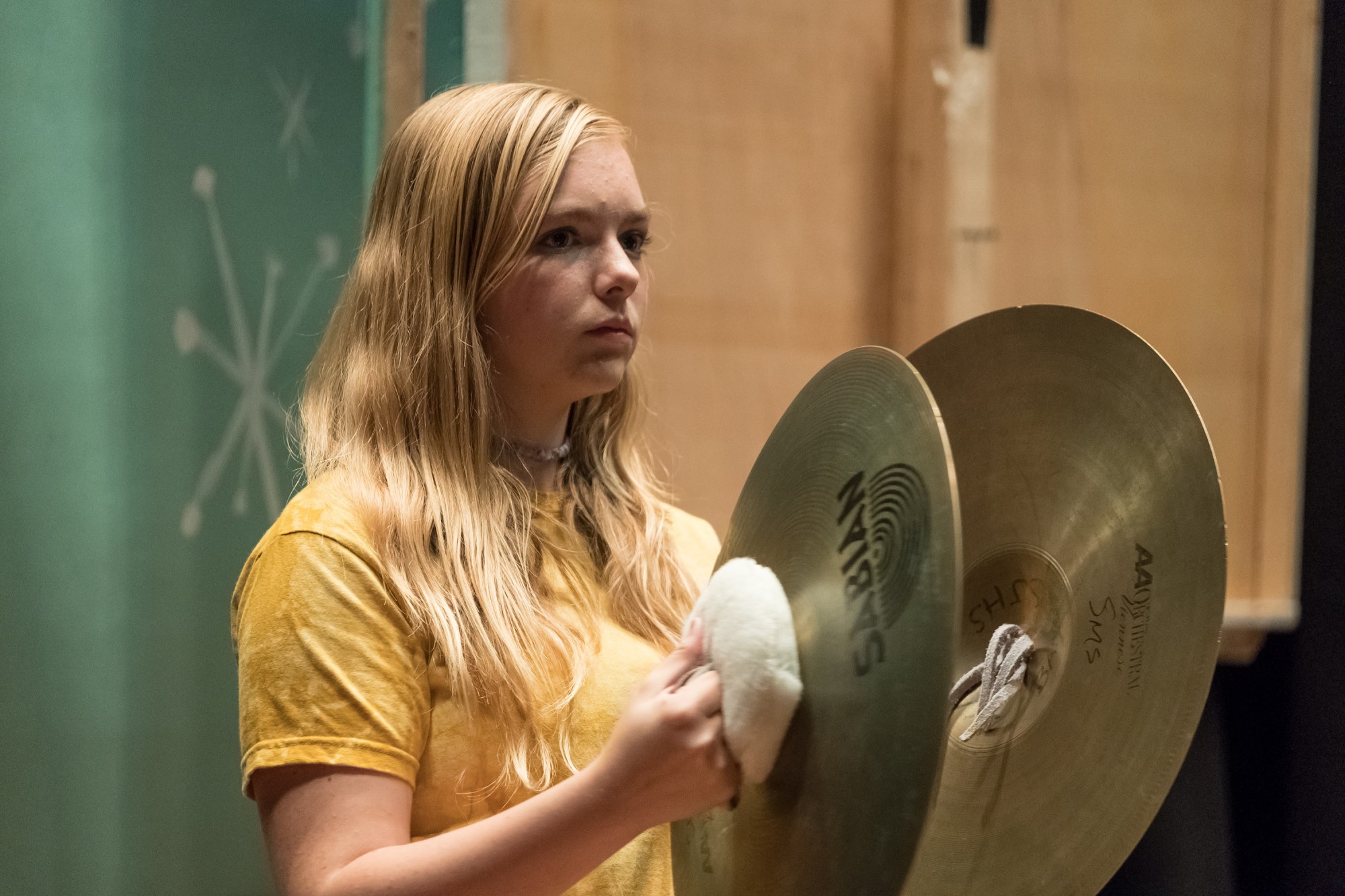“I’m literally sitting in my old childhood bedroom as I speak,” declares Anna Meredith, the Scottish composer who wrote the score for the film Eighth Grade. It’s an uncanny coincidence that Meredith’s life at this very moment mimics that of lead character Kayla (played by Elsie Fisher), whose eighth grade bedroom is a sanctuary from all the noise that causes her anxiety in the outside world. Memories of her own teenage bedroom suddenly come flooding back, and Meredith remembers, “It was a shrine to 1995 for about 20 years. Then a few years ago [my parents] had this big overhaul and got rid of my Keanu Reeves poster and all the Blur posters. It was probably a good thing, but it’s still a little bit devastating.”
Eighth Grade tells the story of Kayla, an introverted but hyper-connected teenage girl who is more comfortable engaging with the world from behind a screen than she is in person. The film, directed by 27-year-old comedian Bo Burnham, takes you deep into Kayla’s world as she cautiously approaches making friends, sharing space with her crush, and finishing middle school. It’s a relatable tale, and due to Burnham’s brilliantly crafted narrative, it’s one that you don’t need to be a teenage girl to connect with it. Many of Kayla’s anxieties transcend her own awkward, angst-ridden life, and are a reminder that certain scars linger well beyond your teenage years.
Meredith’s bold electronic compositions play an important role in directing this narrative. Much like in a nature documentary or in a biology video about the human genome, her music is used to brighten the character’s thoughts and emotions, and to distract you momentarily from the dialogue. “The songs reflect the modern sound world, but it’s probably not the type of music a thirteen-year-old would immediately be listening to,” explains Meredith. “It’s designed to be in her head and to magnify her moments, her stresses, her euphoria — the highs and lows for her.”

The first time we hear Meredith’s music is during the opening credits, when Kayla is starting her school day. But the first time her music really hits you is when Kayla is in a state of heightened anxiety, staring out the window at a pool party. The song playing is “Nautilus;” it’s the opening track off Meredith’s debut album Varmints, which in 2016 won the coveted SAY Award for Scottish Album of the Year, defeating both Chvrches and Young Fathers.
Meredith’s music plays a central role again midway through the film, when Kayla and her classmates are participating in an active-shooter drill. It’s a confronting scene that speaks on multiple levels about the anxiety surrounding guns in schools. For most adults, it’s terrifying to watch children being put through such traumatic simulations, but Meredith, a Scottish citizen who was raised without the threat of gun violence, interpreted the scene quite differently. “When I watched it, I didn’t know whether that was a reality for American kids,” she says, slightly puzzled. “I thought it was a slightly satirical peek at what we might be headed towards.”

Speaking about how she approached composing music for that scene, Meredith explains, “Even though the reality is about this really horrifying thing they are preparing for, what [Bo and I] were talking about with that scene was Kayla. For her it’s not horrifying, it’s a bit boring, and it’s much more focused around the boy that she likes. As an adult you’re watching it and thinking I can’t believe they’re doing drills about guns, but I’m still focused on Kayla, and she’s more excited about being under the desk near the boy she fancies.”
Meredith was able to bring a unique perspective to the Eighth Grade score due to her background as a classical composer, and she says it worked well with Burnham’s vision for the film. “Bo had reviewed all of the other pieces that I’d done — the beatboxing stuff, the body percussion, the orchestral thing — so I think he [understood] the whole picture of what I do.” Varmints, released in 2016, was actually the 40-year-old composer’s debut as an electronic musician. Her most famous works are primarily classical arrangements, including froms, which was created for the famed BBC series Last Night of the Proms in 2008 and was broadcast to 40 million people in the UK.
Most recently, Meredith completed a project that saw her building electronic music around Vivaldi’s The Four Seasons. The work, titled Anno, can be found on her Bandcamp page, and is described by Meredith as “a musical year in a musical hour.” “I’ve treated it as if Vivaldi and I were doing a collaboration,” she says. It’s an expansive project that merges two very different genres, but Meredith says it doesn’t matter whether she is writing a classical or contemporary piece — each composition starts with the same building blocks.

“I actually don’t see them as being very different,” she says. “The way that I compose is exactly the same. Even making all the Eighth Grade stuff, which has no acoustic instruments in it, I still composed it all using the same compositional techniques that I use when writing a piece for an orchestra.” Meredith says all of her work is notated first using classical software, and is then exported into a program like Ableton, where she says “[I can] muck about with it to get the sounds I want.”
Next on Meredith’s agenda is getting her band back together. They have been playing random shows when time permits — including an NPR Tiny Desk Concert this past winter — and Meredith has plans to record electronic album number two with them all contributing their various talents. Following the success of Eighth Grade it seems like a worthwhile endeavor; to strike while the iron is hot and take advantage of a new audience that might be more tuned in to contemporary electronic music than classical.
